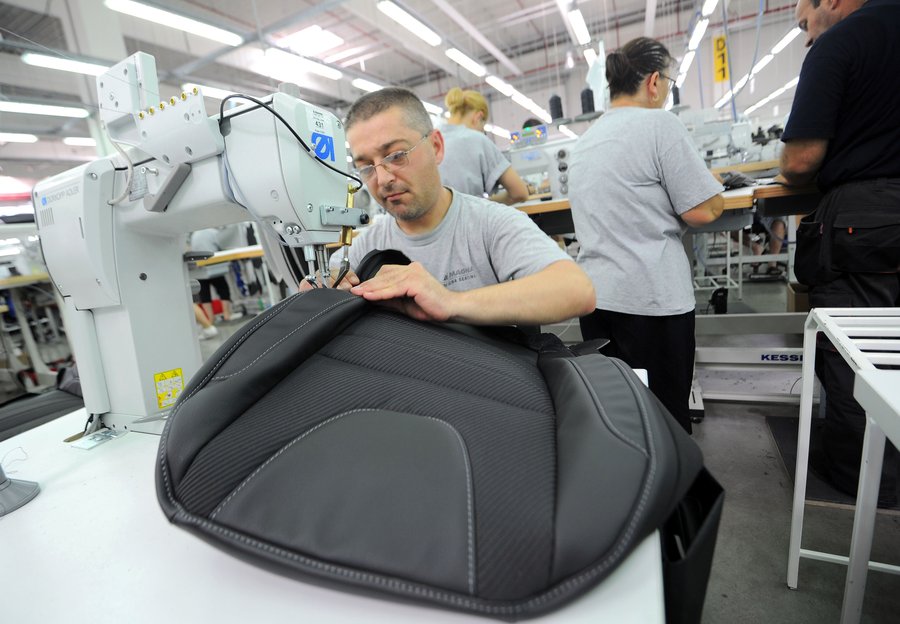They don't want any part of it anymore. Other unproven suppliers are stepping into the void. It's a fundamental shift in the automotive supply chain, and it should be a wakeup call to the automakers of the world.
Mergers and acquisitions are part of the natural ebb and flow of the automotive business. But this year it's almost as if someone threw a switch. Starting this spring there was an explosive flurry of M&A involving the biggest interior suppliers.
First, Johnson Controls Incorporated, the largest automotive interiors supplier in the world, announced it was selling its interiors business to Yanfeng, a Chinese supplier not well known outside of China. Overnight, Yanfeng became the largest interior supplier in the world.
Hot on the heels of that announcement, Magna, another dominant player in the business, announced it was selling its interiors business to a small, regional Spanish company called Grupo Antolin. All of a sudden Grupo Antolin, a privately held company unfamiliar to most people in the industry, doubled in size.
Shortly afterward Faurecia, the supplier company owned by Peugeot which mostly makes interiors, formed a joint venture with the Chinese automaker Dongfeng. It's unusual for an automaker to form a joint venture with an in-house supplier from another automaker, unless it's the prelude to a technology transfer or a complete sale.
The underlying cause of this shift should leave the industry uneasy. JCI did not pull any punches, declaring it's getting out of the automotive business because the profit margins are some of the lowest in the world of industry and commerce. Instead, JCI wants to invest in businesses with much better margins such as real estate management and industrial refrigerators. It's not a good sign for the automotive industry when one of its biggest, most important suppliers says, "Screw it, let's go somewhere else."
Magna was not as blunt as JCI in explaining why it was selling off its interiors business. "This transaction is consistent with our strategy of refining our product portfolio to focus on certain key areas of the vehicle," said Magna's CEO Don Walker in a statement. In other words Magna is getting out of the interiors business to invest in other areas of the car that are more profitable, such as transmissions. Magna just bought Getrag for $1.9 billion.
And yet, what are low margins to JCI and Magna are growth opportunities to Grupo Antolin and Yangfeng. "JCI wants to be diversified and invest in high margin businesses, but Yanfeng will focus solely on the automotive business," said David Wang, President of Yangfeng USA Automotive Trim Systems, in an interview. "Yangfeng knows the key ways to cut costs in China, not just with low labor costs but through very good engineering and lean production."
No doubt Yangfeng will figure out ways to lower costs, and that Grupo Antolin will find efficiencies in its new economies of scale. But do these companies have executives with the experience to handle explosive growth and manage their business on multiple continents? Not today they don't. And while they could acquire those skills over time it's their customers, the automakers, who are going to suffer through their learning curve.
Of course, the automakers only have themselves to blame. Most of them relentlessly beat up their suppliers to lower prices, to the point where the suppliers can't earn a decent return. But then again, they have to. Most automakers aren't posting very good returns, either. That's why FCA's Sergio Marchionne is beating the drums to find another large car company to merge with. He sees the writing on the wall. If all the auto industry is going to do is gobble up massive amounts of capital and offer sub-standard returns, at some point the money people are simply going to take their money somewhere else. Judging by JCI's actions, that's already starting to happen.
But not everyone is running for the exits. The Lear Corporation, another major player in the interiors business, is staying put. Matt Simoncini, the CEO of Lear, has no plans to follow JCI's exit. "That's like waving a flag and saying we're giving up," he says in an interview. Pointing to Lear's record profits, including a solid 14-percent return on investment and a 7-percent operating margin, his view is that, "Consolidation is good. It gets rid of excess capacity and makes the supply chain more efficient."
Even so, that path to efficiency could be interrupted by delayed programs and missed delivery schedules. As anyone on the manufacturing side of the industry will tell you, it's stability and predictability that leads to higher quality. You don't get that from a supply base embroiled in turmoil.
And what's with the timing of these changes? They all occurred within a few months of each other. Is it just a coincidence, or did the OEMs signal that they may be in-sourcing some of their interior work? That sure would be a good bargaining chip for GM, Ford, and FCA in their UAW negotiations. If so, these interior suppliers may have decided it's time to sell, while the selling is good.
Nouvelles connexes



